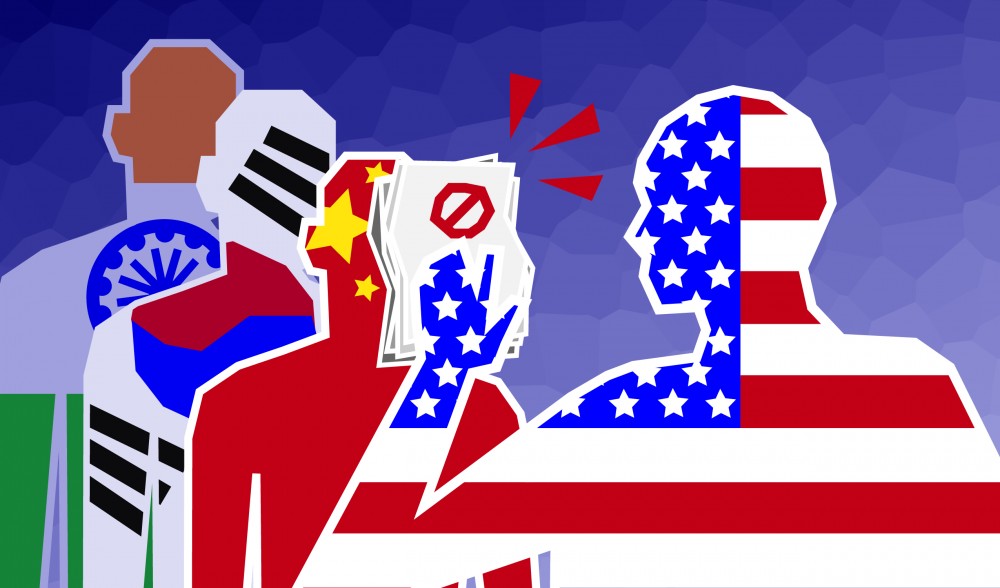A recent change in federal policy has left some University of Minnesota international students scrambling at the start of the school year.
The policy on “Accrual of Unlawful Presence,” which went into effect in August, impacts how the federal government manages unlawful presence of international students with student visas. Unlawful presence occurs when someone has violated the terms of their visa — invalidating it, according to the U.S. Citizenship and Immigration Services website.
Marissa Hill-Dongre, director of the University’s Immigration Response Team, said the new policy is less accommodating to international students.
Previously, students wouldn’t receive an unlawful presence charge unless an immigration judge ruled they had violated their visa, said Hill-Dongre. Under the new policy, students start to accumulate charges on their record over time when they fail to maintain their status.
This means students can acquire an unlawful presence charge without knowing they have violated the terms of their visa, Hill-Dongre said.
The new policy poses serious implications for international students because they may be subject to unlawful presence charges when the terms of their visas are slightly violated, said George Maxwell, an immigration lawyer with Borene Law Firm in Minneapolis.
With the new policy, if the government discovers this policy violation, the student will begin accruing unlawful presence, sometimes without their knowledge, Maxwell said.
When a student is unlawfully present in the country for 180 days, the student is banned from returning to the U.S. for an extended period, Maxwell said.
Uncertainty about change
Since the policy has been enacted, faculty and students have been trying to understand how the changes will impact international students.
“The concern that people have [for this change] is that it’s difficult … to know if they have made a small mistake [or] if they have violated their status,” Hill-Dongre said.
Maxwell said the policy’s vague terms, like “unauthorized activity,” could encompass many things that some assume are minor.
International students and scholars are impacted differently, depending on their individual circumstances, Maxwell added.
A September email from International Student and Scholar Services alerted many international students to the policy change, but the students were unsure how the changes would impact their visas.
Narae Kang, a sophomore from South Korea, updated her address the day she read the email because she had recently moved — not updating it could have violate her visa.
Dyan Chen, a recent University graduate from China who extended her visa, said her main concern is that she is not sure whether she complies with the policy change.
“I guess it’s fair because we are the foreigners,” Chen said.
Hill-Dongre said there are many resources available for students who may not understand the policy change, including on ISSS’s website.
“I think what students need to be thinking about are the things they would normally be doing throughout the course of their academic career,” Hill-Dongre said. “It’s likely with this new policy, that if they haven’t maintained their status — that might be an issue at the point that they apply for [an extension of their visa or a work visa].”
“Our job is to be knowing … what are implications for this policy change for anyone, student or scholar,” Barbara Kappler, director of ISSS said. “Their concern only need to be about their own particular situation.”
Faculty respond
After the ISSS email alert, the Center of Community-Engaged Learning began reaching out to instructors who teach courses with a service learning component.
This outreach is meant to keep professors’ international students informed about the policy and encourage them to take actions early — ensuring their community engagements never becomes unauthorized work, said Laurel Hirt, director of the CCEL.
Aahika Harlalka, a University student from India, is taking a service learning class. At the start of the course, she was told by the instructor to take additional training to better understand risks she may encounter in the course that risk her status.
International students, like Harlalka, take the Curricular Practical Training course before they can get a job off-campus.
“I understand that there may be changes and policies and that happens everywhere,” Harlalka said. “But the thing that didn’t make sense to me is … that I had to go do all this additional stuff to do service learning, which is effectively helping the community that I’m in right now.”
Hill-Dongre said of confusions caused by this policy: “unlawful presence is a very complex concept on its own.” She added that people who have questions about how a decision might impact their maintenance of visa status should seek consultation with an ISSS adviser.























